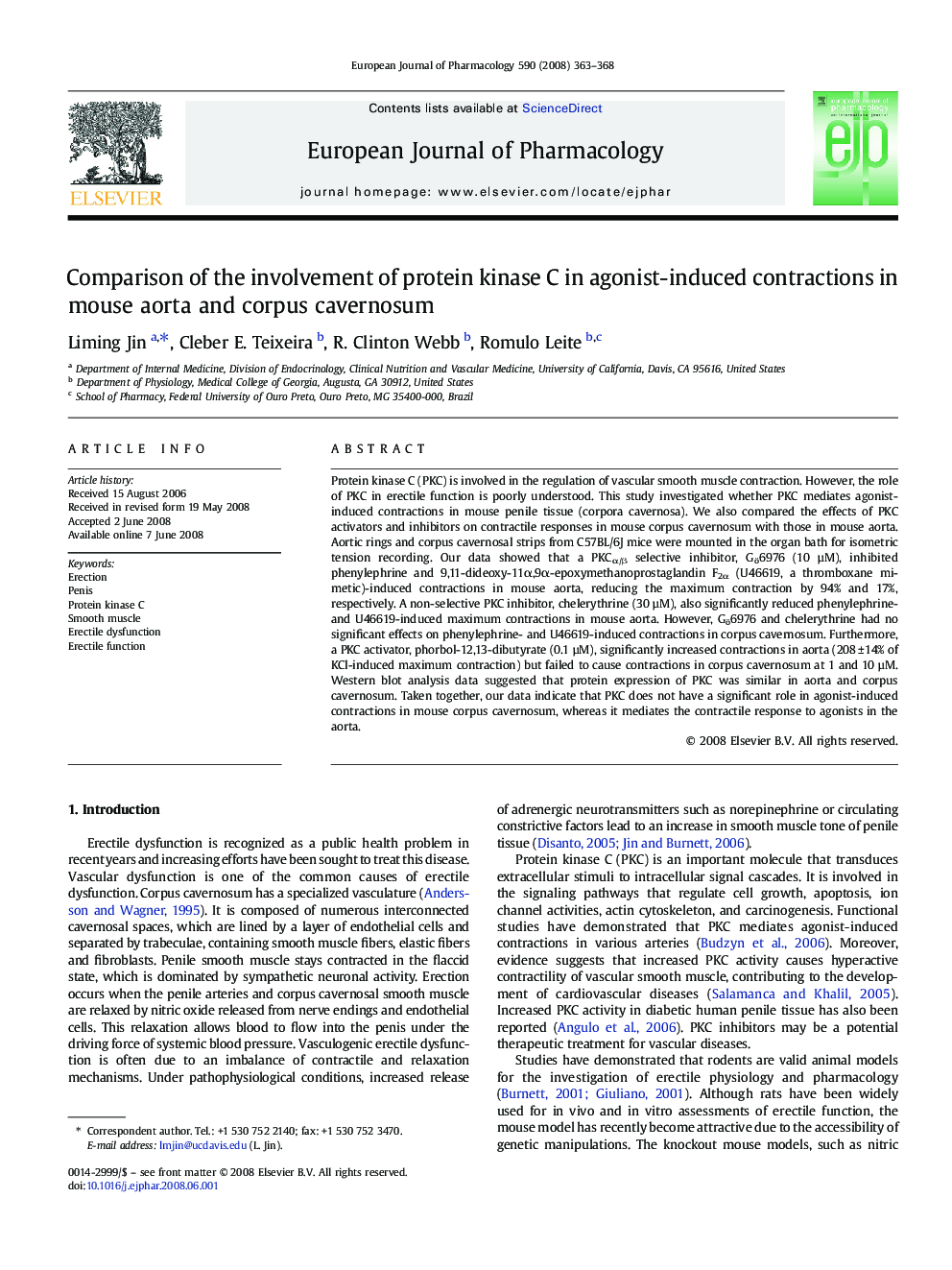| Article ID | Journal | Published Year | Pages | File Type |
|---|---|---|---|---|
| 2534968 | European Journal of Pharmacology | 2008 | 6 Pages |
Abstract
Protein kinase C (PKC) is involved in the regulation of vascular smooth muscle contraction. However, the role of PKC in erectile function is poorly understood. This study investigated whether PKC mediates agonist-induced contractions in mouse penile tissue (corpora cavernosa). We also compared the effects of PKC activators and inhibitors on contractile responses in mouse corpus cavernosum with those in mouse aorta. Aortic rings and corpus cavernosal strips from C57BL/6J mice were mounted in the organ bath for isometric tension recording. Our data showed that a PKCα/β selective inhibitor, Gö6976 (10 µM), inhibited phenylephrine and 9,11-dideoxy-11α,9α-epoxymethanoprostaglandin F2α (U46619, a thromboxane mimetic)-induced contractions in mouse aorta, reducing the maximum contraction by 94% and 17%, respectively. A non-selective PKC inhibitor, chelerythrine (30 µM), also significantly reduced phenylephrine- and U46619-induced maximum contractions in mouse aorta. However, Gö6976 and chelerythrine had no significant effects on phenylephrine- and U46619-induced contractions in corpus cavernosum. Furthermore, a PKC activator, phorbol-12,13-dibutyrate (0.1 µM), significantly increased contractions in aorta (208 ± 14% of KCl-induced maximum contraction) but failed to cause contractions in corpus cavernosum at 1 and 10 µM. Western blot analysis data suggested that protein expression of PKC was similar in aorta and corpus cavernosum. Taken together, our data indicate that PKC does not have a significant role in agonist-induced contractions in mouse corpus cavernosum, whereas it mediates the contractile response to agonists in the aorta.
Related Topics
Life Sciences
Neuroscience
Cellular and Molecular Neuroscience
Authors
Liming Jin, Cleber E. Teixeira, R. Clinton Webb, Romulo Leite,
